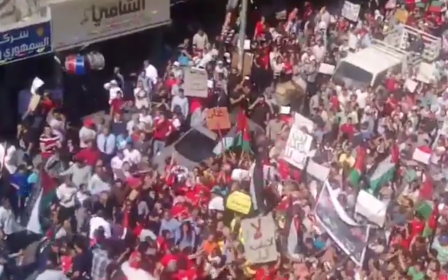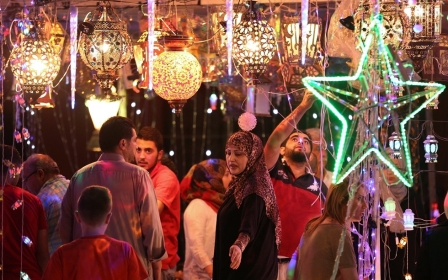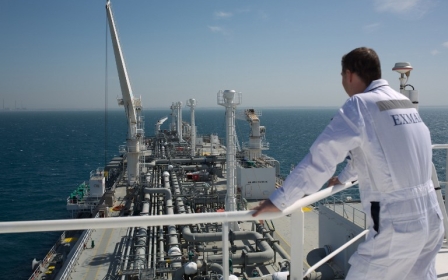Jordan defends Israel gas deal from claims of backing occupation
Jordan on Monday defended its deal to buy Israeli natural gas that has stirred public opposition, insisting the accord would not leave the Arab country reliant on Israel.
Mohamed Momani, the information minister, told Jordanian television that the deal would cut $600m a year from the state's energy bill.
"We will not be dependent on Israel," he said.
Momani said the government was seeking to diversify its sources of gas supplies.
It was "too simplistic to say that sealing such a deal means the kingdom is supporting Israeli occupation," he said, referring to the occupied Palestinian territories.
An estimated 2,000 Jordanians took part in a demonstration on Friday in the centre of Amman to protest against the deal signed on 26 September to import natural gas from Israel.
The protest was called by the "National Campaign to Overturn the Gas Deal with the Zionist Entity", a broad coalition of civil society groups, activists, lawyers and political groups.
A US-led consortium leading the development of Israel's offshore gas reserves announced the deal to sell natural gas from its Leviathan field to Jordan.
US firm Noble Energy, the lead partner, said the contract with the National Electric Power Company of Jordan (NEPCO) was for 300 million cubic feet (8.5 million cubic metres) per day over a 15-year term.
MPs from a variety of different political backgrounds have spoken out against the deal, saying that “normalisation is unacceptable in all its forms”.
The campaign estimates that 56 percent of the deal ($5.6bn) and an estimated 40 percent of electricity bills paid by Jordanian households will go directly into Israeli government coffers.
This article is available in French on Middle East Eye French edition.
New MEE newsletter: Jerusalem Dispatch
Sign up to get the latest insights and analysis on Israel-Palestine, alongside Turkey Unpacked and other MEE newsletters
Middle East Eye delivers independent and unrivalled coverage and analysis of the Middle East, North Africa and beyond. To learn more about republishing this content and the associated fees, please fill out this form. More about MEE can be found here.




